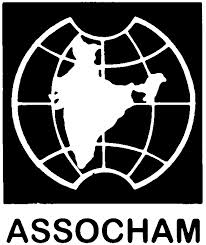 Govt. should make it mandatory to have at least 1 woman director in all company boards
Govt. should make it mandatory to have at least 1 woman director in all company boards
With a view to tap the huge potential of women entrepreneurs in India, apex industry body ASSOCHAM has suggested the Government to link the Pradhan Mantri Jan Dhan Yojana (PMJDY) with entrepreneurship development thereby making it more purposeful.
“Where large projects are to be established requiring extensive construction, banks overseeing inclusion accounts should be asked to link up with such projects and let women from poor families or low income groups run ancillary services from teashops to temporary workshops,” recommended the just-concluded study titled ‘Women Entrepreneur Development for Transforming India’ conducted by The Associated Chambers of Commerce and Industry of India (ASSOCHAM) ahead of International Women’s Day celebrated globally on March 8 every year.
“A mechanism in the Ministry of Marginal, Small and Medium Enterprises (MSME) should be created to look for opportunities in various development programmes to promote women’s enterprises in small and large sectors,” suggested the study prepared by the ASSOCHAM Economic Research Bureau (AERB).
“The Government should give adequate support to the non-governmental organizations (NGOs) and other institutions involved in providing training in skills and enterprise for women under the skills ministry or Ministry of marginal, small and medium enterprises (MSME),” the study added.
“The Government should make it mandatory under the Companies Act to have at least one woman director in all company boards,” said Mr D.S. Rawat, secretary general of ASSOCHAM while releasing findings of the study.
“Regular publication of data on women enterprises, number of women in managerial positions in all larger enterprises and company balance sheets must also mandatorily provide such information,” said Mr Rawat.
“It is not about merely increasing the participation of women in the labour force but we need to transform such participation from low paying jobs to enterprises owned by women themselves be at micro or macro level,” he added.
“Capital market regulator, Securities Exchange Board of India (SEBI) could be asked to publish level of women’s participation in fresh stock issues and investigate any alarming fall in the same,” further said Mr Rawat. “Besides, Government tenders should promote women-owned enterprises by giving them preferences over others in deciding to entrust projects/supplies.”
With these measures, entrepreneurial development amid women and their participation in the economy would steadily rise, shrink the gender gap in higher managerial positions and create synergies in other national programmes like school enrollment, women empowerment, toilets in all houses, security of women and elimination of gender discrimination and social disabilities, noted the ASSOCHAM study.
It has also been suggested that payment entities like National Payment Corporation (NPCL) should be supported to impart entrepreneurial skills to women as majority of remittances are sent to women of the family.
Considering growing needs of testing laboratories for soil, seed, food, healthcare and other sectors, women science graduates could be supported to set up such labs as part of commercial operation, it added.
With the Government planning to make medicines available at low prices for all, such chemists’ establishments could also be reserved for women entrepreneurs, further suggested the ASSOCHAM study.
Listing a range of enterprises where women could play a key role as owner, worker and a consumer, the study has further recommended that personal care product makers should link up with women self-help groups (SHGs) and the serving banks to create a synergy and enable women to take up micro investment in product distribution
